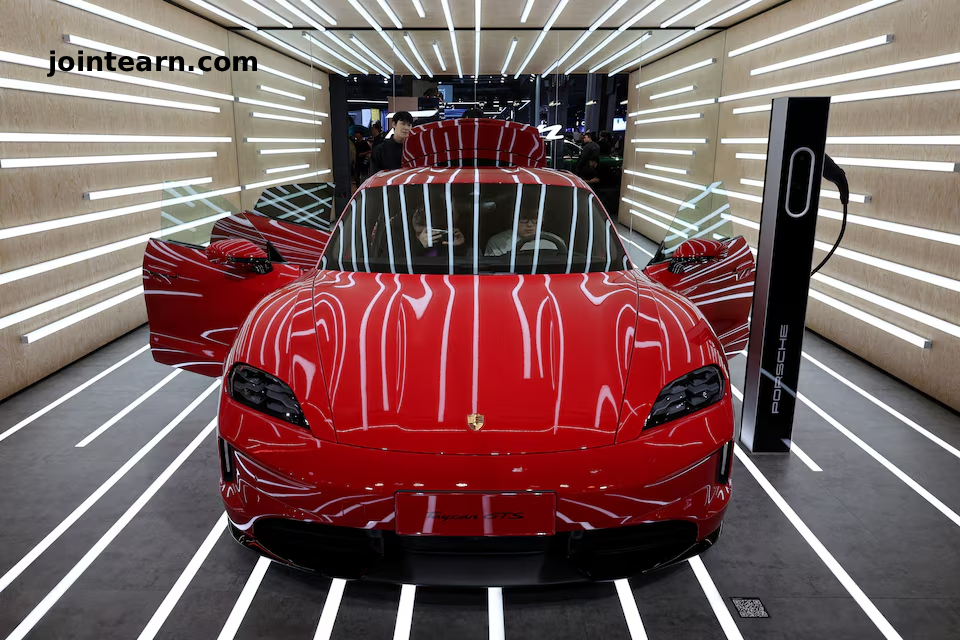
Porsche SE, the top shareholder of luxury automaker Porsche AG, reported a significant decline in earnings during the first nine months of 2025, as the company grapples with challenges in its electric vehicle (EV) strategy and broader issues in the automotive sector.
Adjusted profit after tax fell 36% to 1.6 billion euros ($1.87 billion) compared to the same period last year, highlighting the impact of Porsche AG’s delayed EV rollout and Volkswagen Group’s financial pressures.
Ownership Structure and Strategic Importance
Porsche SE, controlled by the Porsche and Piech families, holds 12.5% of Porsche AG and is Volkswagen Group’s largest investor, owning 31.9% of shares and 53.3% of voting rights.
The holding company’s financial results are closely tied to the performance of both Porsche AG and Volkswagen Group, making its profitability sensitive to challenges in the luxury and mass-market automotive segments.
Key Factors Behind Profit Decline
The profit slump at Porsche SE was “significantly influenced” by problems at both Volkswagen and Porsche AG, including:
- Delayed electric vehicle rollout – Porsche AG postponed EV launches amid falling demand in China, increasing operational costs.
- Rising transition costs – The shift toward EVs has been expensive, with investments in technology, supply chains, and infrastructure weighing on margins.
- Market challenges – Strong competition from Chinese automakers, global tariffs, and supply chain disruptions have further pressured earnings.
Despite these challenges, CFO Johannes Lattwein noted that Porsche SE improved its financing structure, enhancing resilience even amid turbulence in the automotive industry.
Financial Health and Strategic Moves
Porsche SE’s net debt fell by 3% to 5 billion euros during the nine-month period, reflecting careful financial management. The company has also maintained its full-year guidance following a prior profit warning in September related to its EV strategy overhaul.
To diversify its portfolio and reduce reliance on automotive earnings, Porsche SE is exploring investments in the defence sector, capitalizing on rising government spending in the industry. This strategic pivot aims to balance the risks of an expensive and competitive transition to EVs.
Outlook for the Automotive and Defence Markets
While German automakers struggle with the costs and complexities of EV adoption, defence companies such as Rheinmetall are benefiting from a surge in government contracts, highlighting the contrasting trajectories within the industrial sector.
Porsche SE’s dual focus on strengthening its automotive investments while exploring defence and alternative sectors positions it to weather ongoing volatility and capitalize on emerging opportunities in Europe and beyond.


Leave a Reply